Michael Johnson (left) and Samuel Johnson have been tight since he was four.
This Father's Day they will be on the farm out there in the neutral zone, in the fields just outside of Selma, Ala. Of course they will. Michael Johnson and his father are always on the farm when they are together.
Which is funny because even though Samuel Johnson raised him as right as rain and always on a straight line to quarterbacks and dreams, Mike always wanted to bring him full circle.
Cincinnati Bengals host Minicamp at Paul Brown Stadium







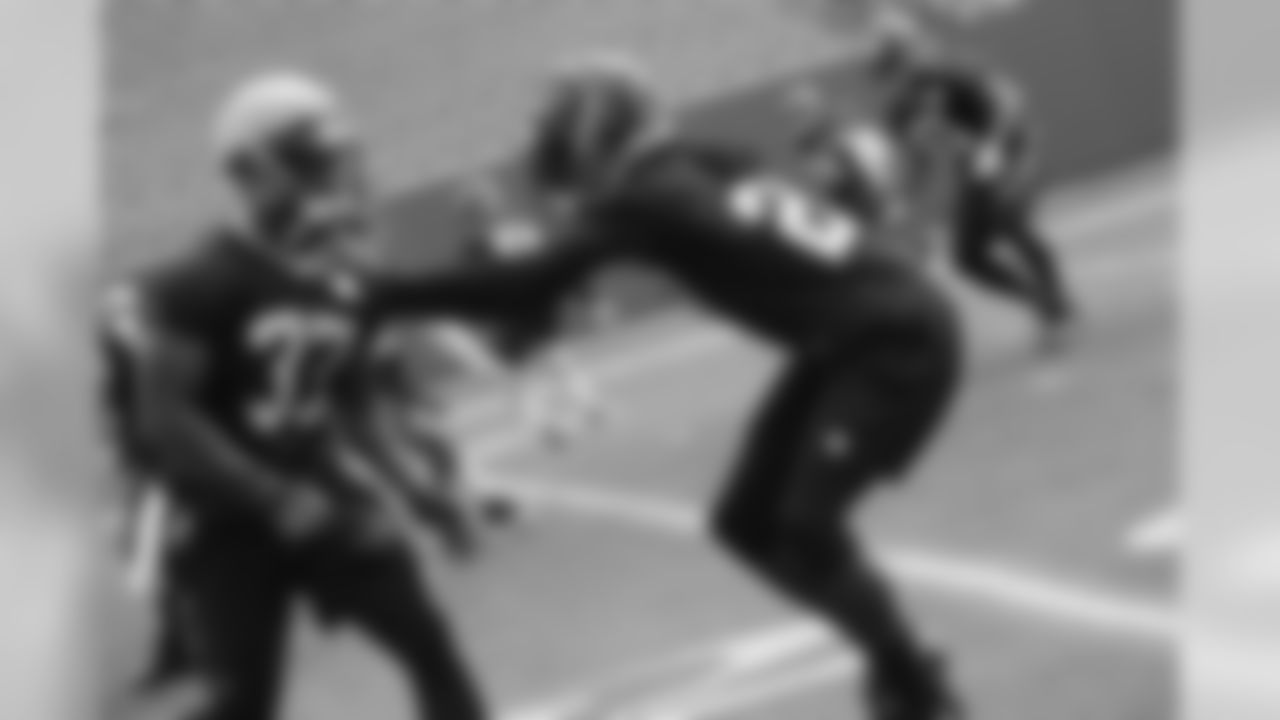
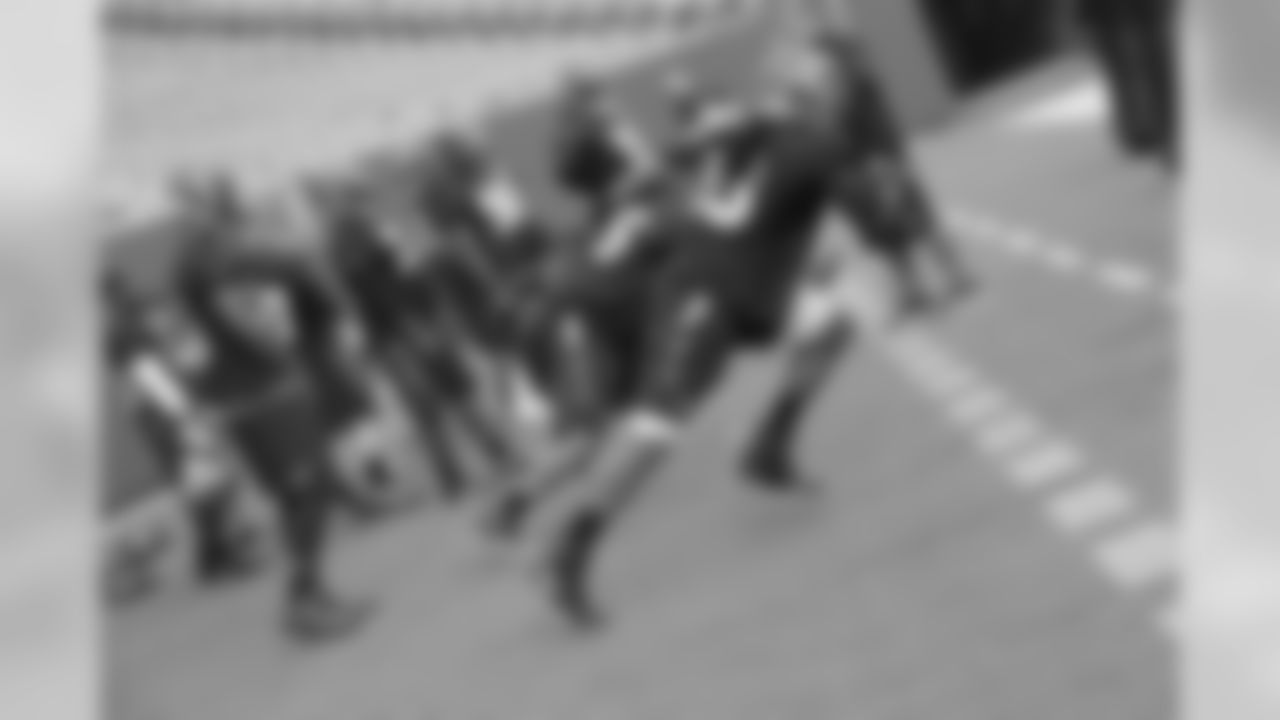










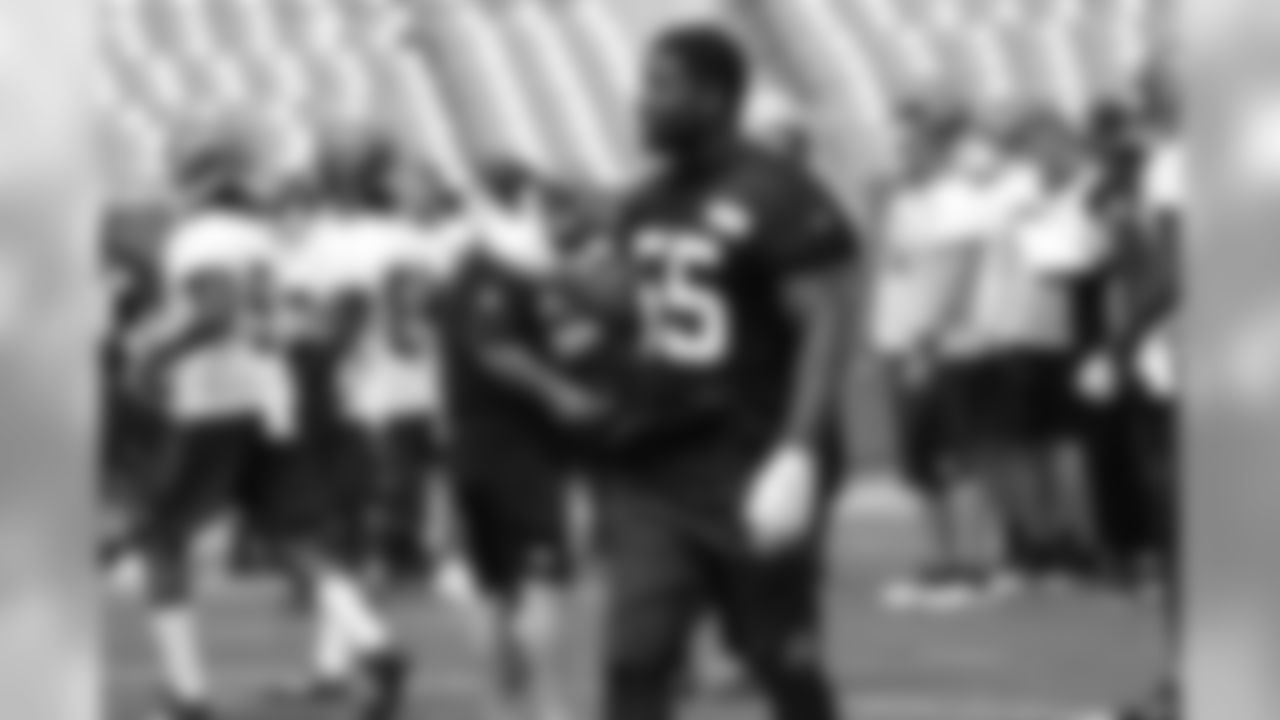
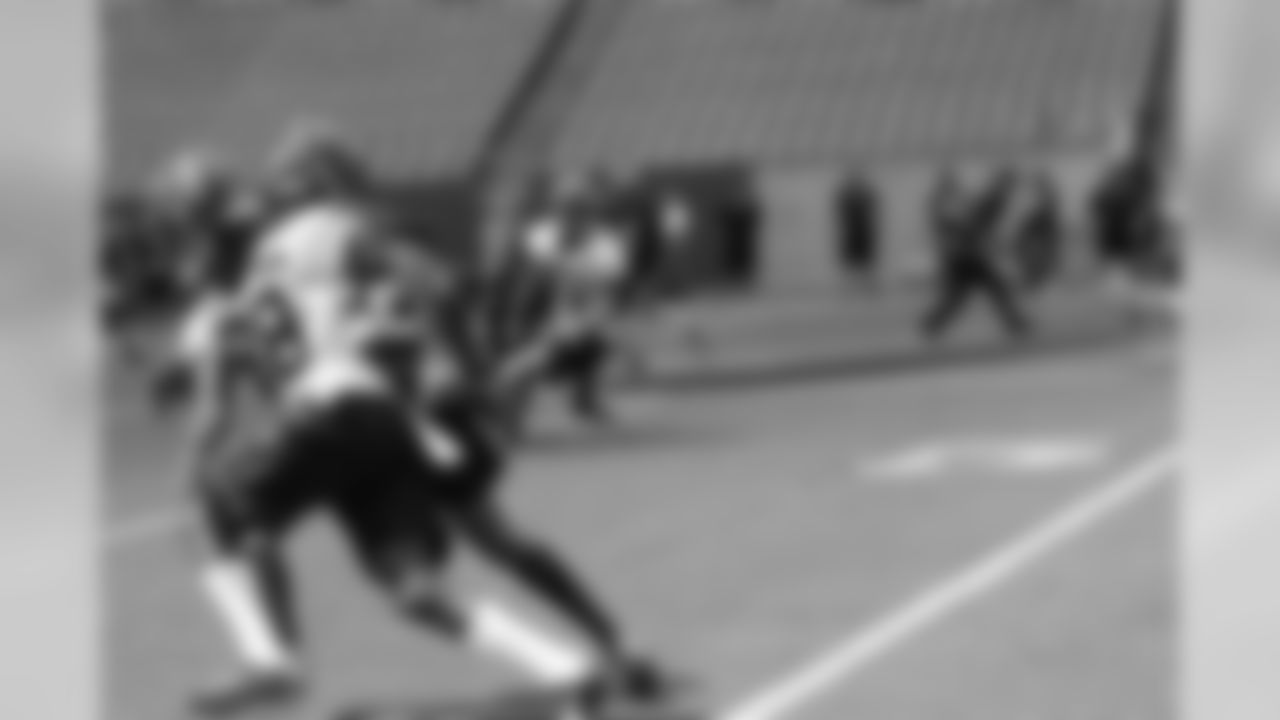
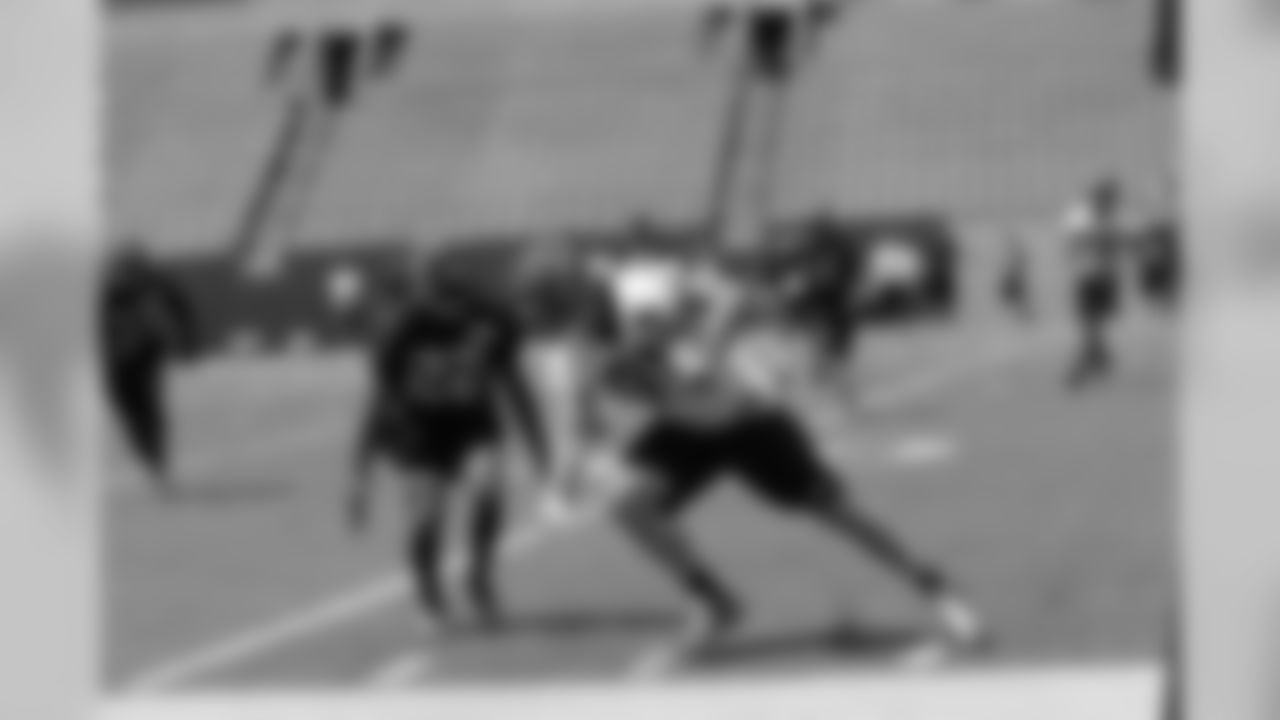
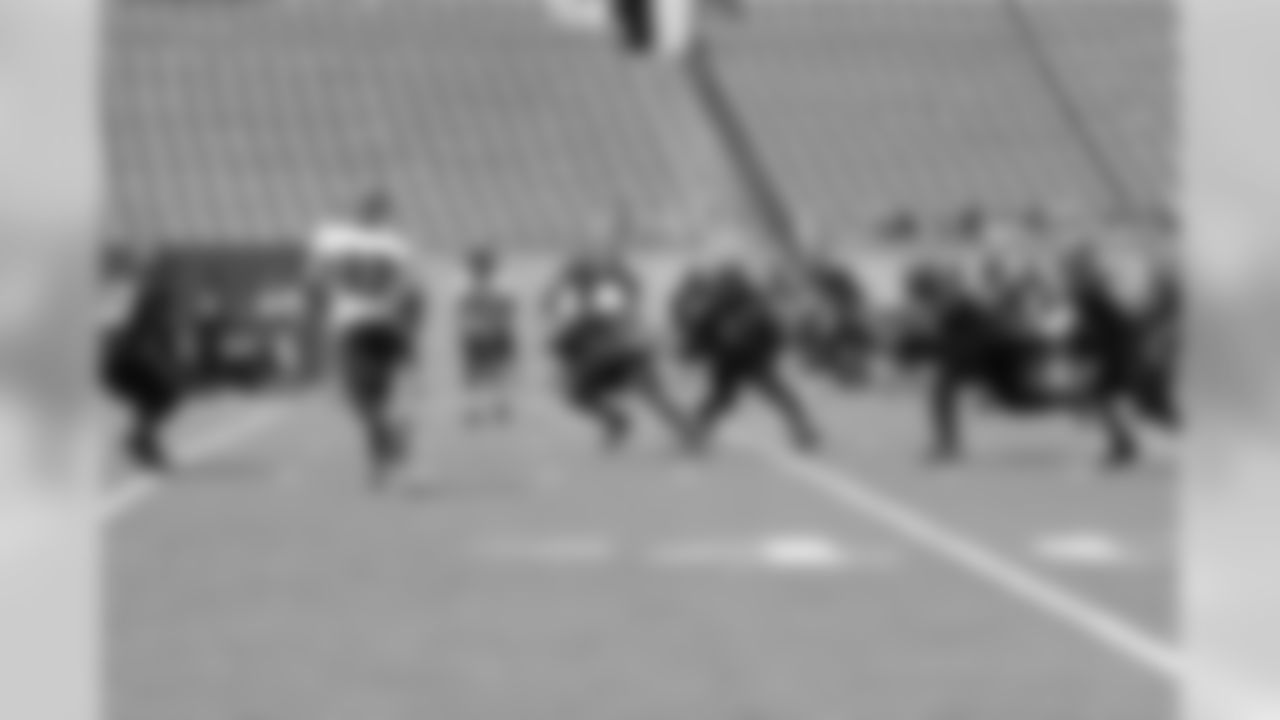

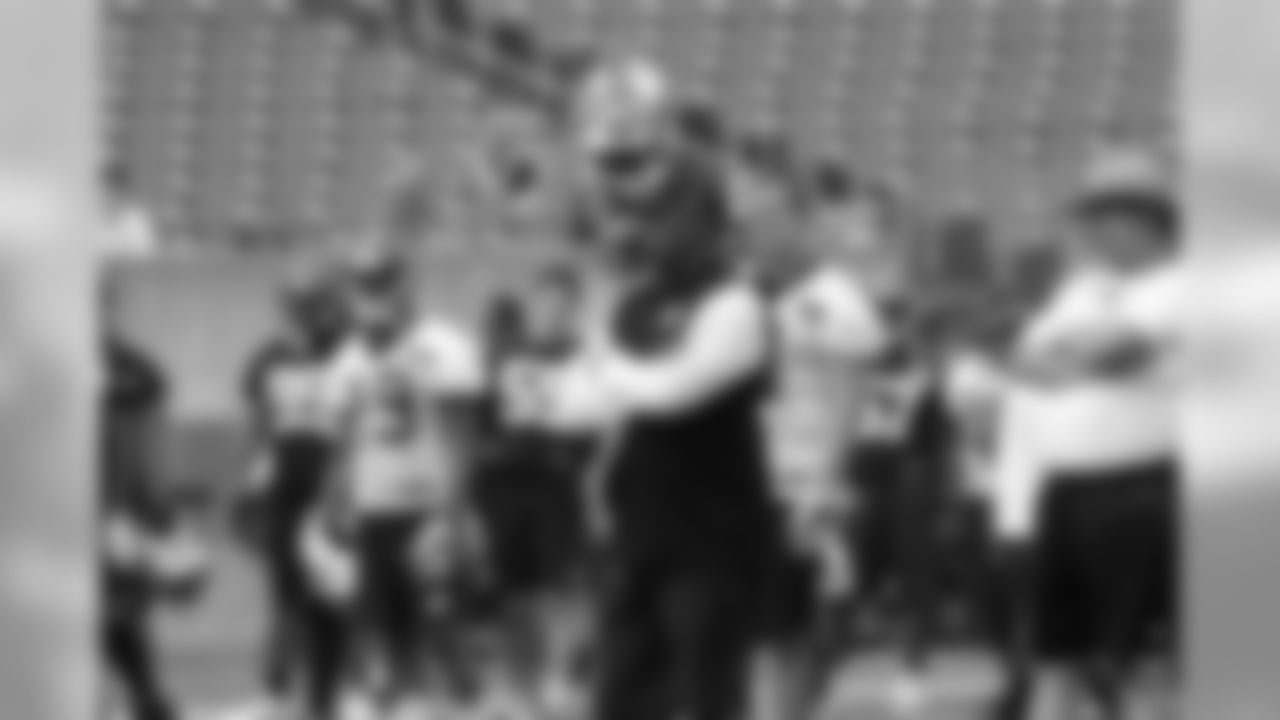
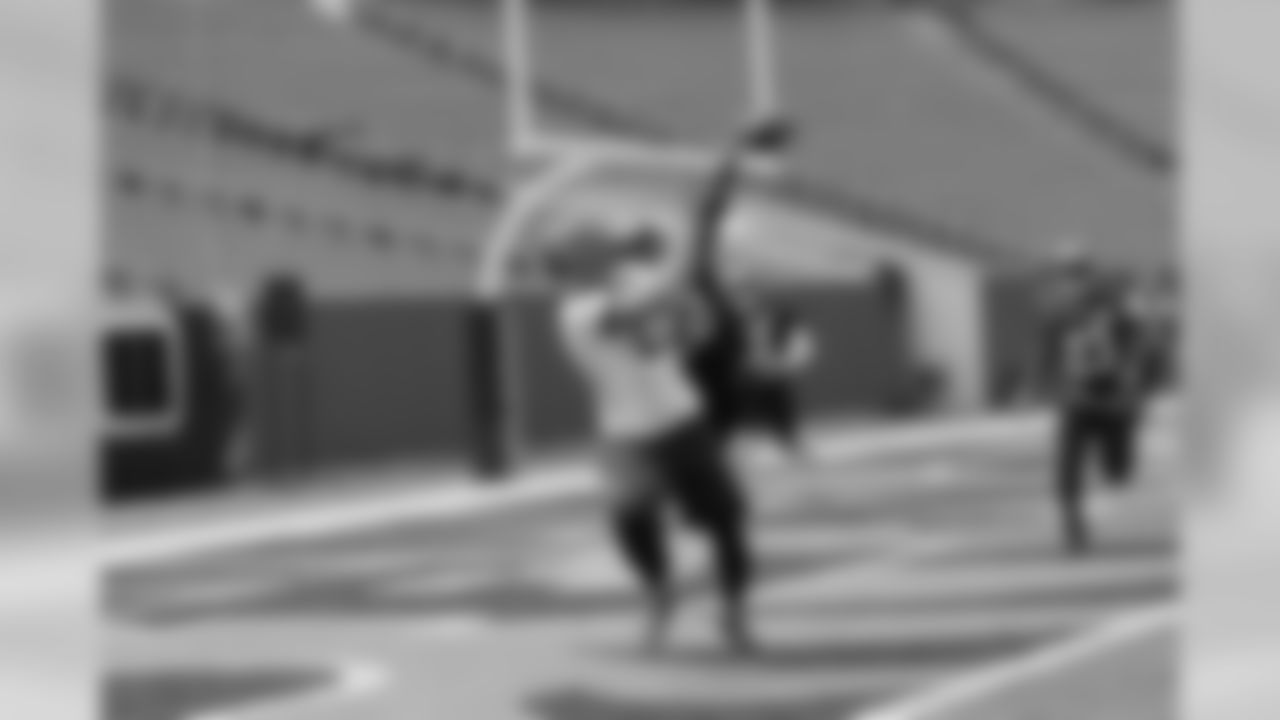


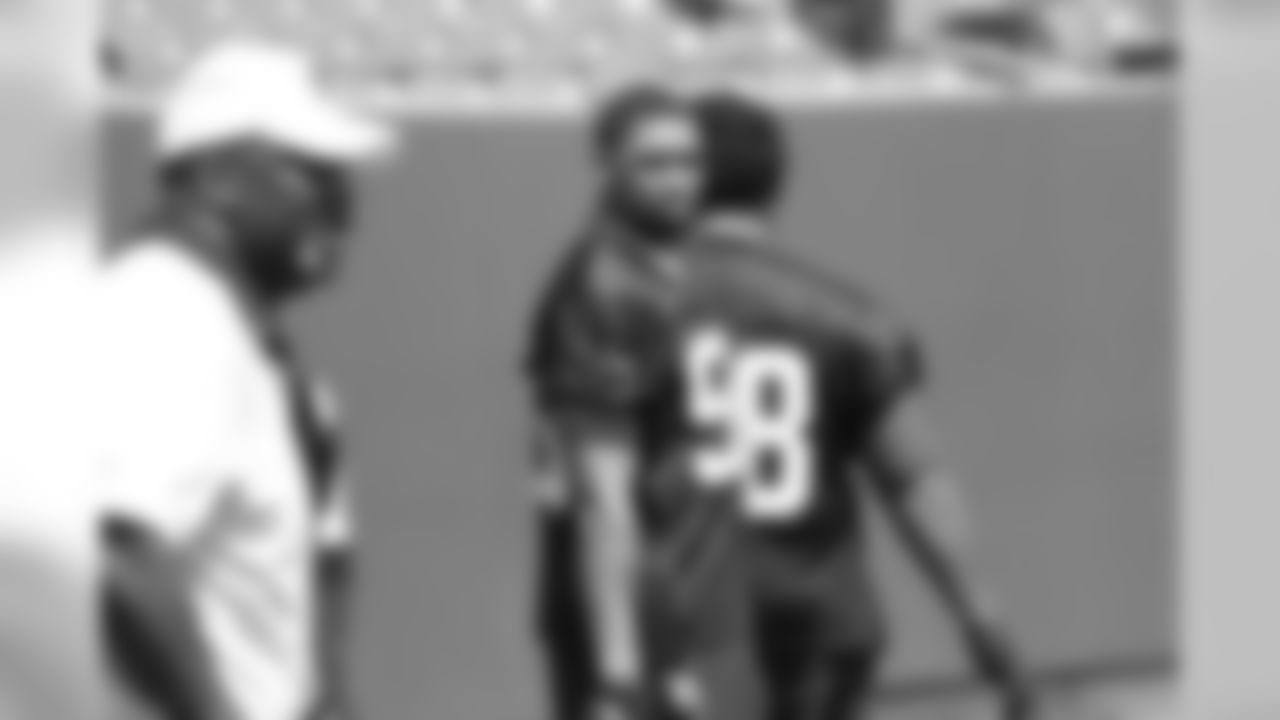






Back to the farm. Ever since Mike heard the stories. About how his dad, smack in the middle of 14 in a sharecropper's family, couldn't go to school before all the cotton was chopped on the 300 acres owned by one family and worked by two or three others. So he would begin his school year according to the crop.
Or how he had to milk the cows at 5 a.m. when he was in school. And how when he got in trouble his mom sent him to school early and he ended up graduating at 17.
Or any other story from the dying remnants of the old south as the '50s blurred with the '60s that now seem to be an incredible, almost unreal tableau. Back before Sam got off the farm and found himself face-to-face with the Viet Cong leading a search-and-destroy mission on the morning of May 7, 1967 in a hell on earth known as Quang Nam Province.
"We'll ride out and check on the cows," Sam Johnson says of the four-wheelers this Father's Day. "He'll get on the red one and I'll get the green one."
Michael David Johnson, Bengals right end, has ridden them all. Everything but the Super Bowl and that's why at age 30 he treats the game like a god and his body like a temple.
High School valedictorian. Five star recruit. NFL third-round draft choice. Locker room leader. A community activist in two cities. A mentor to University of Cincinnati students. A lifeline for Selma school kids.
You can see his head bobbing just behind the president of the United States as they crossed the Edmund Pettus Bridge two years ago to celebrate the 50th anniversary of Selma's gift to the civil rights movement, literally walking in the footsteps of his mother, a 15-year-old in the back of the Bloody Sunday march who once shook Martin Luther King's hand after a church meeting.
Now Mike Johnson owns a farm of his own teeming with 250 acres, where they raise cows for meat. Right now there are about 80 head and they keep it in house. Sam and Mike run it with uncles and cousins.
Full circle in a four-wheeler.
"My parents would tell me, 'We paved the way for you. You have to make it wider for someone coming behind you,'" Mike Johnson says.
He never asked his dad about Vietnam. He saw the missing index finger on his right hand. He knew he had to speak louder in one of his ears. He saw him write with his left hand when he knew he was a righty. He saw the steel pushing itself out of his body, a last casualty of war trying to escape.

Michael Johnson and Dad on the road. After all, Sam was turning 40 when Mike was born. He was 20 when he was leading an India Company fire team from the second platoon of the First Marine Corps Division. Sam Johnson saw a slash of Viet Cong moving to the right and he waved his men straight ahead. Two steps, maybe three steps and his boot hit a land mine.
"Boom," Sam Johnson says. "Didn't lose consciousness. The first thing I remember is trying to reach for my first aid kit in my backpack."
It would take more than that. It took him three months to walk again and more than a year to rehab an figure out how to live with a mangled right hand and inured feet. By 1968 and for the next five years he was working with veterans while getting his bachelor's in business from Alabama State. Then for the next 23 years he was human resource manager for International Paper.
"From the time Mike was four he went everywhere with me," Sam Johnson says. "It didn't matter if it was out to the store or out in the garden, we were always side by side.
"You ask him who his hero is, he'll say his dad. Ask him where he gets his motivation, he'll say his dad," Sam Johnson says. "I contributed a little bit. More so his mother, but I helped."
That was kind of like the subject of Vietnam. Sam would talk about his buddies or the raging Forest Gump drill instructors or "The funny stories." But he never talked about "the action." That's kind of how it was as Mike grew up. He just watched instead of asked.
"He would ask me, 'Have you ever seen me not go to work?' and I'd say no because he always went whether he was sick or not," Mike Johnson says. "I think like any father and son we get closer as we get older. When you're young, they get on you. Oh yeah, he got on me. 'Do it right.' You're always trying to chase your dad for approval.
"I had a roof over my head and food in my stomach. I knew that's what a man is supposed to do. That's the example of being a man I wanted to be like. Be dependable and be accountable to my family and those around me."
One time Mike remembers coming home and telling his parents that one of his friends was getting money for every A he got and …. They exploded.

Michael Johnson had a path paved to the NFL.
"They got so mad," Mike Johnson says. " 'Don't you ever come in here and talk about someone else's grades. You make an A because you can make an A and we expect you to make it.'"
It was about the same conversation they had when Mike wanted to go to school with his friends, which happened to make it a mostly black school. But with both his parents products of another time, that simply wasn't an option. Another short conversation.
"They didn't want me to see color," says Mike Johnson, who can see it all now. They wanted him to have a world they didn't, where there were no bridges to cross or wars to fight. He shakes his head. While his mother was back in Selma discovering her school had different textbooks than white schools and she had to go through the back entrance of her doctor's office, Sam Johnson went to the front of the line for the same country.
"I'm so proud of them," Mike Johnson says. "What they went through and they were the first generation in their families to go to college. It makes you take nothing for granted."
Which is why Mike and Sam Johnson are on their farm this Sunday.
"The green one is slower," Sam Johnson is saying of the vehicles. "The red one is really fast. Mike will be on that one. It goes through everything."
But the green one already did. Which is why the red one is going Father's Day fast.















